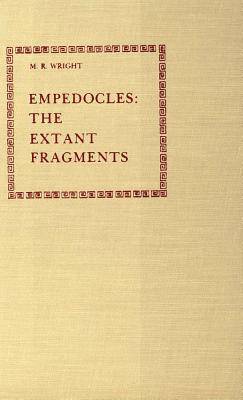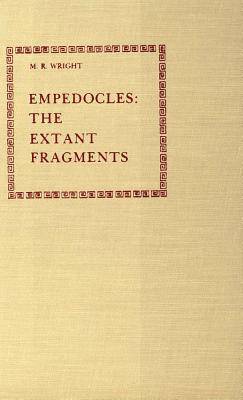
- Afhalen na 1 uur in een winkel met voorraad
- Gratis thuislevering in België vanaf € 30
- Ruim aanbod met 7 miljoen producten
- Afhalen na 1 uur in een winkel met voorraad
- Gratis thuislevering in België vanaf € 30
- Ruim aanbod met 7 miljoen producten
Zoeken
Omschrijving
One of the most important Presocratic philosophers was the Sicilian Empedocles. He presented his work in the form of two hexameter poems, of which about 450 lines are extant, revealing a formidable range of interests, acute observation, and a firm grasp of fundamental issues in the study of man and nature.
Empedocles' theory of four elements was crucial to later developments in science and medicine. He showed how forces of attraction and repulsion acted on the elements within a framework of cyclical time and limited space, and initiated or advanced major discoveries in astronomy, biology, and physiology. More sophisticated concepts of divinity, personality, and mortality replaced traditional mythology, and these concepts were founded on the conviction that the individual has control over his own character and intellectual growth.
The introduction discusses Empedocles' life and interests, the content of the Physics and Katharmoi, and the relation of the two poems to each other. A new Greek text with apparatus is followed by translation, commentary, and detailed concordance, to give a comprehensive edition of this key figure in the history of ideas.
"With its careful and judicious editing of the fragments and its many fresh insights into Empedocles' thought, this work will be indispensable to students of Presocratic philosophy."--Alexander P.D. Mourelatos
Empedocles' theory of four elements was crucial to later developments in science and medicine. He showed how forces of attraction and repulsion acted on the elements within a framework of cyclical time and limited space, and initiated or advanced major discoveries in astronomy, biology, and physiology. More sophisticated concepts of divinity, personality, and mortality replaced traditional mythology, and these concepts were founded on the conviction that the individual has control over his own character and intellectual growth.
The introduction discusses Empedocles' life and interests, the content of the Physics and Katharmoi, and the relation of the two poems to each other. A new Greek text with apparatus is followed by translation, commentary, and detailed concordance, to give a comprehensive edition of this key figure in the history of ideas.
"With its careful and judicious editing of the fragments and its many fresh insights into Empedocles' thought, this work will be indispensable to students of Presocratic philosophy."--Alexander P.D. Mourelatos
Specificaties
Betrokkenen
- Auteur(s):
- Uitgeverij:
Inhoud
- Aantal bladzijden:
- 376
- Taal:
- Engels
Eigenschappen
- Productcode (EAN):
- 9780300024753
- Verschijningsdatum:
- 10/09/1981
- Uitvoering:
- Hardcover
- Formaat:
- Genaaid
- Afmetingen:
- 160 mm x 242 mm
- Gewicht:
- 725 g

Alleen bij Standaard Boekhandel
+ 261 punten op je klantenkaart van Standaard Boekhandel
Beoordelingen
We publiceren alleen reviews die voldoen aan de voorwaarden voor reviews. Bekijk onze voorwaarden voor reviews.











